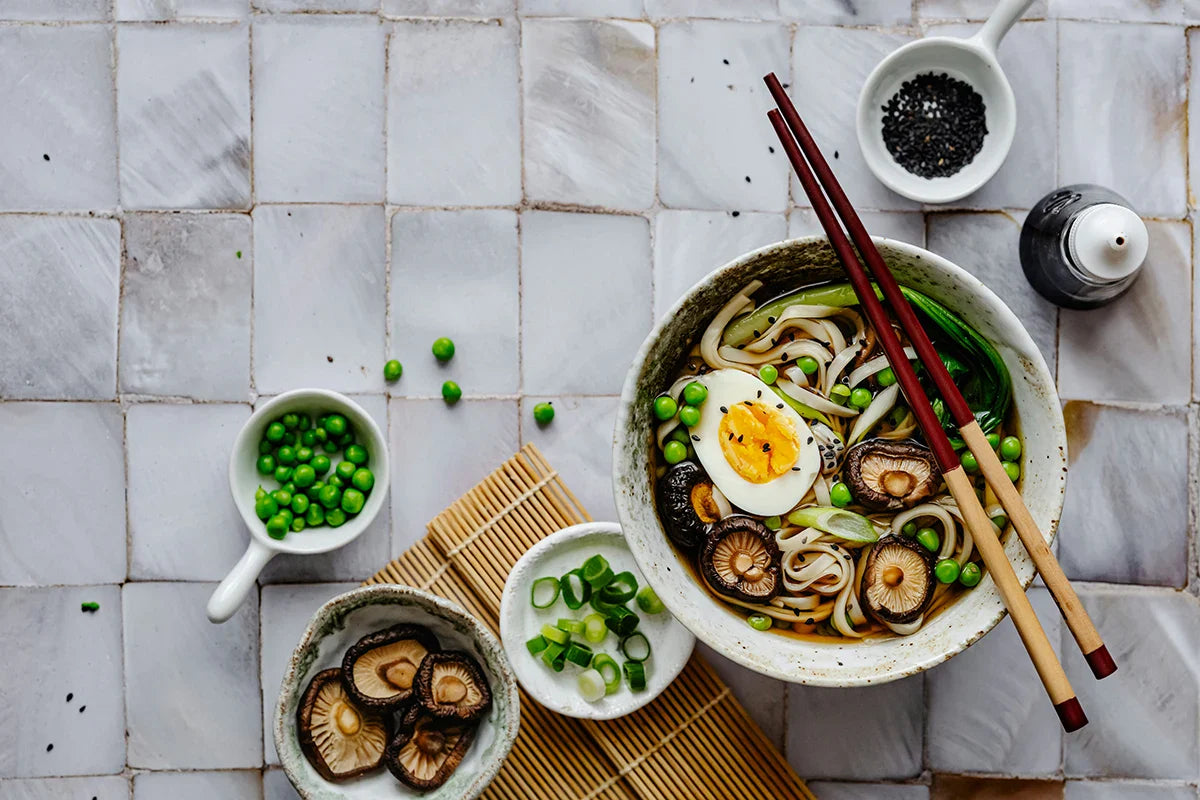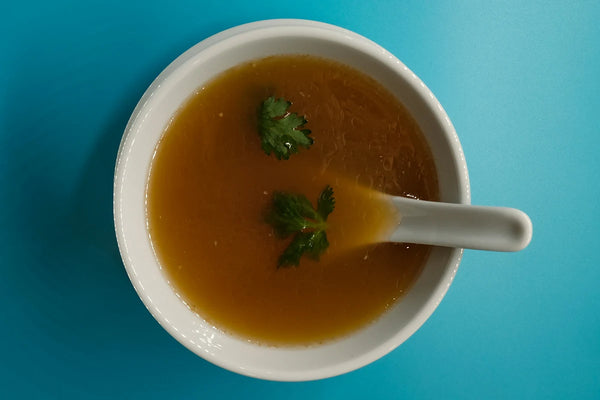
What is umami?
As one of the five basic tastes, umami is the savoury, meaty flavour that comes from amino acids and protein. The delicious taste of umami was attributed to amino acid in the early 20th century by a Japanese chemist - unsurprising, when umami is so central to Japanese cuisine.
Examples of umami seasoning in other food cultures might include Worcestershire sauce, oyster sauce, tomato paste, malt vinegar or fish sauce (often activated with lemon juice). However, an umami substance in Japanese cooking is often more delicate and complex.
Soy sauce, miso paste, shiitake mushrooms, kombu and katsuobushi are just a few Japanese umami-packed ingredients you can use to create rich flavour.
As the fifth basic taste, the other basic tastes are sweet, sour, salty and bitter. To explore that delicious fifth taste of umami, read on!

The taste of umami
The taste of umami, often described as a savoury or brothy richness, provides a satisfying depth to foods that makes them inherently gratifying.
This meaty flavour is produced by the presence of glutamates, such as monosodium glutamate or amino acid glutamate, which are commonly found in high-protein foods, broth, or fermented products.
It is a complex taste that lingers on your taste buds, enhancing the overall gastronomic experience by rounding out the flavours and leaving a long-lasting savoury taste.
Umami is not only prevalent in meat but also in plant-based sources like tomatoes, mushrooms, and aged cheeses like parmesan, making it a versatile taste that can be enjoyed across various cuisines and dietary preferences.
Japanese food with umami flavour
Japanese cuisine masterfully capitalises on umami-rich ingredients to create deeply satisfying dishes.
Traditional foods such as sushi and sashimi rely on the natural umami present in fresh fish, while staples like ramen and miso soup get their rich, savoury depth from katsuobushi (dried bonito flakes) and fermented miso paste.
Another cornerstone of umami foods is dashi, a stock made from kombu (dried kelp) and katsuobushi, which forms the base for many Japanese soups, stews, and sauces.
Additionally, grilled items like yakitori (grilled chicken skewers) and yakiniku (Japanese barbecue) feature a caramelisation of meats that reveals their inherent umami.
These ingredients and dishes exemplify the balanced, subtle complexity that umami brings to the forefront of Japanese gastronomy.

Buy authentic Japanese umami-boosting ingredients at The Wasabi Company!
Our Japanese umami boosters are an incredible shortcut to add deep savoury flavour to meat dishes, stir-fries, soups and more.
Explore our range of high-quality Japanese ingredients to add a rich umami taste in just seconds.
We have various types of umami sauce and authentic ingredients, from premium soy sauces made with centuries-old soy sauce production methods, to yuzu ponzu: a savoury-tart rice vinegar, used as a dipping sauce.

